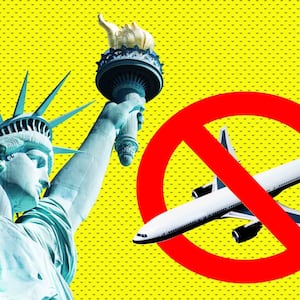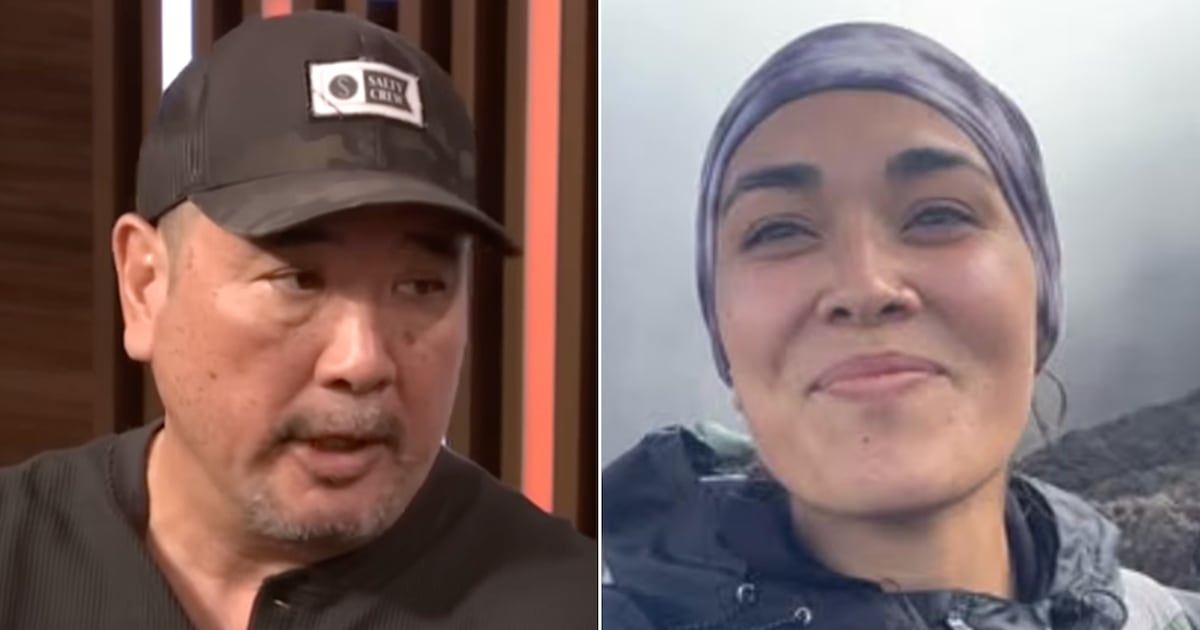A Yemeni mother fighting to enter the country to see her 2-year-old son on life support in a California hospital will finally be able to travel to the United States, the Council on American-Islamic Relations said on Tuesday.
Shaima Swileh will get on the earliest available flight out of Egypt, using a rare travel waiver granted by the U.S. State Department, confirmed Basim Elkarra, the executive director of CAIR’s Sacramento Valley chapter.
Swileh was barred from entering the country under President Trump’s ban on travel from several Muslim-majority countries.
ADVERTISEMENT
“My son Abdullah needs his mother,” Ali Hassan, the boy’s father, said. “We are so thankful to CAIR and everyone for their support. My family will now be able to be together one last time.”
The advocacy group expects Swileh to arrive by Thursday afternoon in Oakland, where the boy is being treated at University of California Benioff Children’s Hospital.
“Unfortunately, even in this win, it’s still a loss, but at least she’ll come and be able to mourn with dignity and see her son get buried and bring some closure to all the pain,” Elkarra added. “We just hope that she can make it in time and see her son in his last hours.”
For two months, Swileh has been separated from her critically ill toddler and her husband, who is a U.S. citizen living in Stockton, California.
The toddler was born in Yemen, like his mother, but obtained citizenship through his father after being diagnosed with hypomyelination, a degenerative brain disorder.
Because Swileh is Yemeni, however, she is unable to travel to the United States under the 2017 White House travel ban. After multiple failed attempts to obtain an emergency visa to travel with her husband and son to the United States for medical treatment, Swileh was left behind.
Hassan and his toddler arrived in California on Oct. 1, where he is currently at the UCSF Benioff Children’s Hospital in Oakland.
“It’s criminal that we have to stand before [Trump] and beg for this family to be together,” Betty Williams, president of the Sacramento branch of the National Association for the Advancement of Colored People, said on Thursday.
The family of three’s now-viral story instantly resonated with the Council on American-Islamic Relations, who took up the case in November to push the State Department to approve the emergency request.
“This is a very real case that really shows the effects of family separation,” said Saad Sweilem, a civil rights attorney with CAIR who is representing the family. “This is a United States citizen that is going to die away from his mother.”
The news of Swileh’s impending arrival came shortly after Hassan, appeared on CNN to plead with officials to expedite his wife’s application, telling CNN New Day host Alisyn Camerota that his son, now in a ventilator, is running out of time.
“Time is running out for my son, to be honest,” Hassan said, adding his son’s birthday is Saturday. “All she wishes is to see her son, and that’s it. We want to be together.”
Hasan then spoke of the controversial travel ban that still restricts nationals of Yemen and six other countries from entering the country-- a move the Trump administration originally justified as a way to thwart terrorism.
“All families, they’re supposed to be together. Right now, with my son’s situation, he’s facing death. I’m going through losing my son, he said. “It’s really hard for me and for my mother and for my family and my wife, too. It’s just really hard.”
Doctors have told Hassan that patients like his son are usually on life support for two or three weeks, but he explained Abdullah has been on a ventilator for more than a month.
“It’s really bad,” he said.
The 2017 travel ban at broke this family up barred visas for citizens from five Muslim majority countries: Iran, Somalia, Syria, Libya, and Yemen. The ban, signed in an executive order by Trump days after his presidency, also includes North Korea and Venezuela, though few North Koreans are able to travel to the U.S., and restrictions on Venezuela only apply to government agency employee and their immediate families.
Despite criticism that the travel ban was an act of Islamophobia, the Trump administration maintained that it was necessary because of possible terrorist activity, poor screening, and security standards. The ban, which replaced two earlier versions blocked by lower courts, was upheld as legal in June by a Supreme Court ruling.
According to the State Department, consular officers can make exceptions to the travel restriction, but only if the request is in “the national interest” and “the applicant poses no national security or public safety threat to the United States, and denial of the visa would cause undue hardship.”
The State Department did not respond to The Daily Beast’s request for comment.
The I-130 visa waiver will also allows Swileh to remain in the country with her husband after her son’s death and she will be able to pursue permanent legal immigration.
“She is very relieved, very thankful, and she just cannot wait to come and see her son,” Saad Sweilem said.









